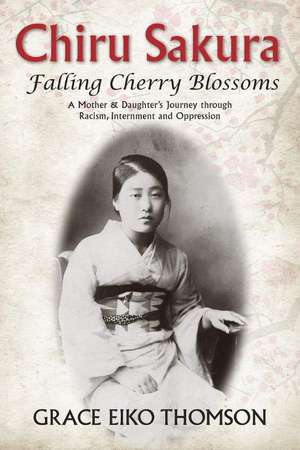Chiru Sakura -- Falling Cherry Blossoms: A Mother & Daughter's Journey through Racism, Internment and Oppression
Autor Grace Eiko Thomsonen Limba Engleză Paperback – 8 sep 2021
Preț: 76.78 lei
Nou
Puncte Express: 115
Preț estimativ în valută:
14.69€ • 15.96$ • 12.34£
14.69€ • 15.96$ • 12.34£
Carte disponibilă
Livrare economică 01-15 aprilie
Livrare express 18-22 martie pentru 22.87 lei
Preluare comenzi: 021 569.72.76
Specificații
ISBN-13: 9781773860411
ISBN-10: 1773860410
Pagini: 240
Ilustrații: b/w photos
Dimensiuni: 155 x 230 x 18 mm
Greutate: 0.31 kg
Editura: Caitlin Press (CA)
Colecția Caitlin Press (CA)
ISBN-10: 1773860410
Pagini: 240
Ilustrații: b/w photos
Dimensiuni: 155 x 230 x 18 mm
Greutate: 0.31 kg
Editura: Caitlin Press (CA)
Colecția Caitlin Press (CA)
Recenzii
"Grace's stories about growing up in the Powell Street (Paueru Gai) area of Vancouver, juxtaposed with her mother's recollections, bring to life the once vibrant Japanese Canadian community that existed prior to the forced uprooting of Japanese Canadians in 1942. Her compelling family story seen from both her and her mother's eyes give us insight into generational differences, separation of family, and the internment experiences of women and girls, which is something you wont find in history textbooks." --Lorene Oikawa, president of the National Association of Japanese Canadians"
